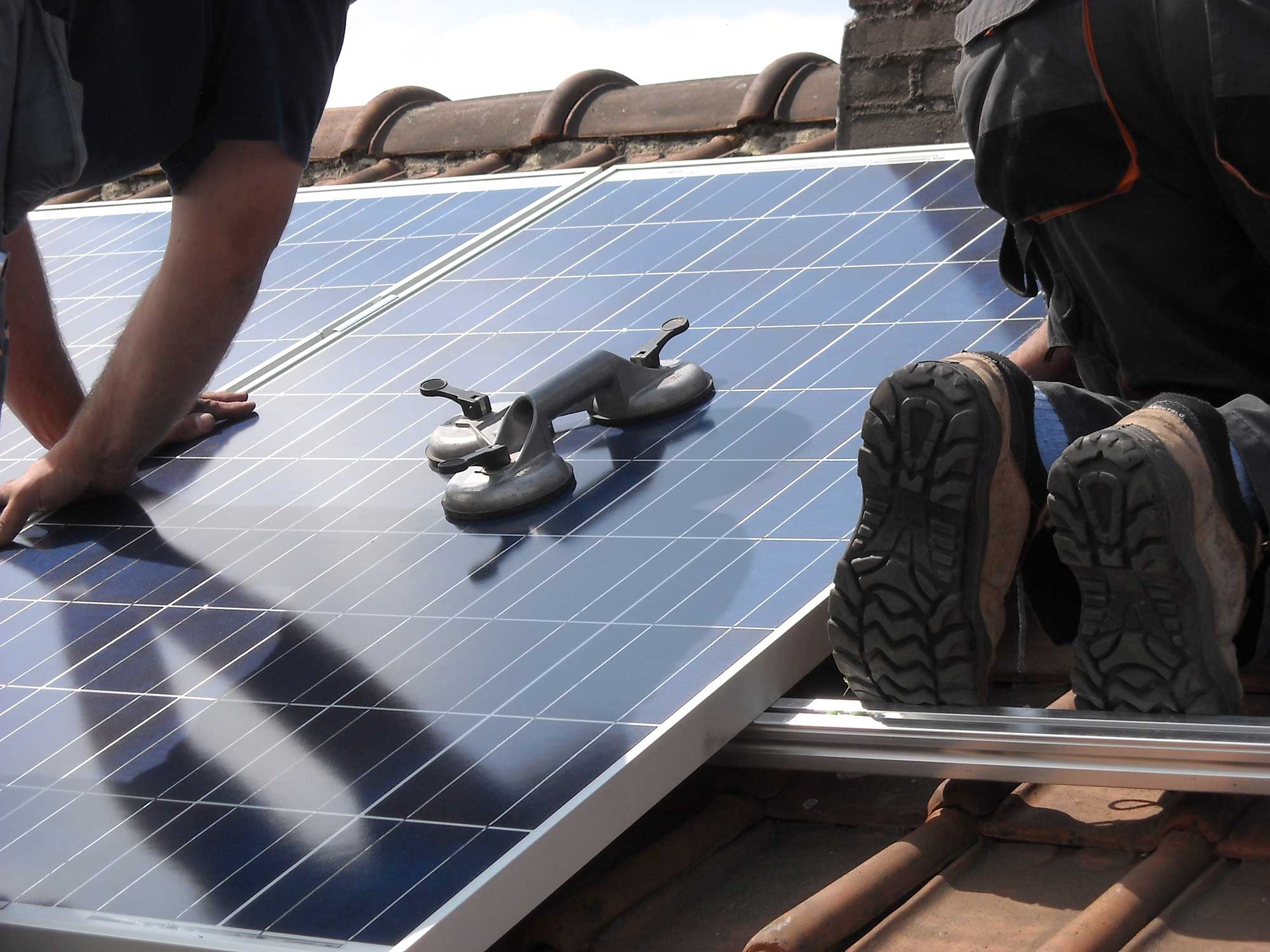Exploring Renewable Energy Sources and Their Impact on the Environment
Renewable energy sources offer a clean, sustainable way to power our homes and businesses. But what exactly are these energy sources? And how do they impact the environment? In this blog post, we’ll explore renewable energy sources, their advantages and disadvantages, and their potential impact on the environment. Read on to learn more!
Understanding Renewable Energy Sources
Renewable energy sources such as solar, wind and hydro power can provide an unlimited source of clean energy. Solar power has seen a surge in popularity over the last few years due to its ability to provide an affordable, sustainable and renewable source of energy. It is also a great way to reduce carbon emissions and contribute to a greener planet. Solar technology continues to evolve, with solar panels becoming smaller and more efficient, making solar energy even more attractive as an option for reducing our dependence on fossil fuels. Investment in solar power can be an important step toward reducing our dependence on non- renewable energy sources and benefitting the environment.
These sources are also more cost-effective in the long-term, since they do not require additional fuel or resources to operate, making them much friendlier to the environment than non- renewable sources of energy. Many people are beginning to recognize the potential benefits of renewable energy sources, such as solar and wind power, in providing sustainable options for electricity production. Despite an initial higher cost compared to traditional energy sources, solar and wind energy can be harvested and utilized over virtually unlimited time periods with no additional resources required for production. Not to mention, these sustainable energies often reduce an individual’s electricity costs in the long run when compared with other sources. As a result, more countries around the world are making efforts to switch from traditional sources to clean, sustainable energy solutions that benefit both our planet and our wallets.
By embracing renewable energy sources, we can reduce our reliance on non-renewable sources such as coal and oil, which can have a detrimental effect on the environment in the long run Also, by opting for more sustainable energy sources such as solar and wind power, we can ensure that our environment is protected from the effects of burning coal and oil. This can help us in transitioning to a more sustainable lifestyle, while also helping us save money in the long run. Ultimately, it pays to be proactive with renewable energy and make sure that we are not relying on non-sustainable energy sources as much.
Benefits of Renewable Energy
Renewable energy sources such as solar, wind and hydropower are clean and generate no carbon emissions. Solar power is one of the most sustainable forms of energy, harnessing the sun’s rays to generate electricity from solar panels. It is also an incredibly efficient resource. Its installation costs have decreased significantly over the years, and solar energy is now being used in many different ways, from residential solar panels to large-scale solar farms. The solar industry is booming globally, and is increasingly becoming a viable solution for meeting our energy needs in a more sustainable way.
Renewable energy can also be used to power homes and businesses, reducing reliance on fossil fuels. This renewable energy is generated from sources such as solar, wind and hydroelectric power. It is becoming an increasingly popular alternative to traditional energy sources, as renewable energy is renewable, meaning it is endless and can be used without causing harm to the environment. Sustainable energy is helping individuals and businesses create a greener future and contribute to reducing greenhouse gas emissions. This renewable energy can help us all live a more sustainable life.
Using renewable energy sources can also help to create jobs in the renewable energy sector, providing economic benefits for communities Furthermore, renewable energy sources have the potential to be the cornerstone of a more sustainable future. As renewable energy sources become more prevalent, they will also create jobs in renewable energy sectors. This in turn has a positive economic impact on communities through providing employment which generates wealth. Investing in renewable energy not only helps to protect the environment, but it is also an investment into the future of our society.
Challenges of Renewable Energy Implementation
A major challenge of renewable energy is the cost of implementation and maintenance. While renewable energy sources like solar and wind produce no emissions and are great for the environment, they can be expensive to implement and maintain. Governments around the world have attempted to make sustainable energy more affordable through incentives and subsidies, but in many cases the costs of implementation are still too high. Finding ways to make these renewable energy sources more accessible is essential if we want to create a truly sustainable energy future.
Renewable energy sources can also be intermittent, meaning that they may not always be available when needed. This can be a challenge when it comes to sustainability and implementing renewable sources into the energy process. However, the potential of renewable energy is enormous and should not be overlooked. Through the use of smart grids and improved storage capabilities, sustainable energy sources can be used more effectively. New technologies are being developed to make renewable energy more reliable and efficient. By harnessing sustainable solutions to our energy needs, we can create a better future for ourselves and our planet.
Finally, transitioning to renewable energy sources can require significant infrastructure upgrades, which can be costly and time-consuming However, despite the high upfront costs and timelines associated with transitioning to sustainable energy sources, making this shift is essential for a better, cleaner future. Investing in renewable energy sources now can help us both reduce our environmental footprint and create jobs in the long run. Adopting sustainable energy is not only necessary for our planet’s survival, but it is also an important part of building a brighter tomorrow.
Advantages of Sustainable Energy
Sustainable energy sources are renewable and have minimal environmental impact, making them a great alternative to traditional energy sources. Solar, wind and hydro power are the three main renewable sources of energy available, and all have their own unique benefits. Solar energy is renewable, readily available and relatively easy to install; however it does require a large upfront cost. Wind energy is renewable, requires minimal maintenance and can be used in remote locations; however it requires appropriate conditions to generate energy efficiently. Hydro energy uses water to generate renewable energy but can also be less reliable due to the availability of resources. Utilizing one or a combination of renewable sources of energy can help reduce our dependence on traditional sources over time and provide environmental benefits in the long run.
They are also more cost-effective in the long run, as they require less fuel and maintenance costs. Sustainable energy sources, such as solar and wind power, are renewable and can be used indefinitely. Additionally, they are renewable energy sources that don’t contribute to air pollution or global warming. Therefore, investing in renewable sources of energy is an important step toward protecting our environment and saving money in the long run. As renewable energy becomes more accessible and affordable, it could be a major player in the future of sustainable energy.
Additionally, sustainable energy is becoming increasingly accessible, with more countries investing in the technology and infrastructure needed to make it viable In conclusion, sustainable energy is a great way to reduce our reliance on non- renewable sources, such as fossil fuels, and is becoming increasingly accessible with solar energy being one of the most promising sources in this regard. With more countries investing in solar energy technology and the infrastructure needed to make solar energy viable, it looks like solar power is here for the long haul.
Disadvantages of Sustainable Energy
Sustainable energy sources can often be more expensive to produce than traditional energy sources, but that doesn’t mean they don’t have their advantages. Solar power, for example, is clean and renewable, meaning it never runs out and won’t contribute to climate change. Additionally, solar panels can be installed on your home or business to provide energy without being connected to the energy grid. This could not only reduce energy costs but also increase the value of the property. Overall, sustainable energy sources are more than worth the investment as they offer many benefits that traditional sources do not.
They can also require more space and infrastructure to be built, which can disrupt ecosystems. Sustainable energy offers a cleaner, more environmentally friendly alternative to traditional fuel sources like coal and natural gas. It relies on renewable resources like solar and wind energy, which are replenished naturally over time. Furthermore, sustainable energy technologies are less disruptive to the environment since they don’t require additional land or infrastructure, while still providing reliable energy. Ultimately, the use of sustainable energy sources can help us maintain a healthy, balanced ecosystem while still having access to the necessary energy resources that drive our modern lifestyle.
Finally, some renewable energy sources such as solar and wind power are only available during certain conditions, making them unreliable in certain areas Also, solar power is not always reliable as it is dependent on certain conditions such as the amount of sunlight available. This makes solar energy unreliable in certain areas and could be a challenge to implement on a larger scale in the future. However, solar energy can still be a viable source of sustainable energy if the right conditions are present.
Environmental Impact of Renewable/Sustainable Energy
Renewable energy sources such as solar, wind, and geothermal are much more environmentally friendly than traditional sources of energy. With the rise of global warming, it’ s becoming increasingly important to be more conscious of our energy sources and reduce the amount of pollution they produce. Sustainable energy can help contribute to a healthier planet, reduce reliance on fossil fuels, and promote a more environmentally conscious future. Not only is sustainable energy better for the environment, but it also has the potential to save consumers money when implemented properly. It’s time we turn to renewable, sustainable sources of energy and make a shift away from traditional sources.
By using renewable energy, we can reduce our reliance on finite resources such as oil and gas, which are bad for the environment. Switching to sustainable energy sources such as solar, wind and hydro power can help us to reduce our carbon footprint and create a more eco-friendly future. Plus, using these natural resources helps us to save money in the long run, since we won’t have to pay for expensive fuels. We can also take advantage of government incentives such as tax credits for using renewable energy sources. Sustainable energy is not only good for the environment – it’s great for our wallet too!
In addition, renewable energy production also has a low carbon footprint compared to other sources of energy Additionally, renewable energy is the most environmentally-friendly source of energy since the production of renewable energy produces less carbon emissions than any other form of power generation. This makes renewable energy sources the ideal choice for those looking to lead a greener and more sustainable lifestyle. Moreover, renewable energy also has a low carbon footprint compared to other sources of energy and is renewable in nature, meaning it does not rely on finite resources or cause large environmental disruption if produced in large quantities.
Wrapping up
In conclusion, renewable energy sources are a valuable means of combating climate change, reducing air pollution, and promoting environmental sustainability. While it is true that the current implementation and adoption of renewable energy sources can be improved, they still offer a clean, sustainable alternative to traditional sources of energy. Through proper implementation, investment, and education, renewable energy sources have the potential to greatly reduce their impact on the environment.




